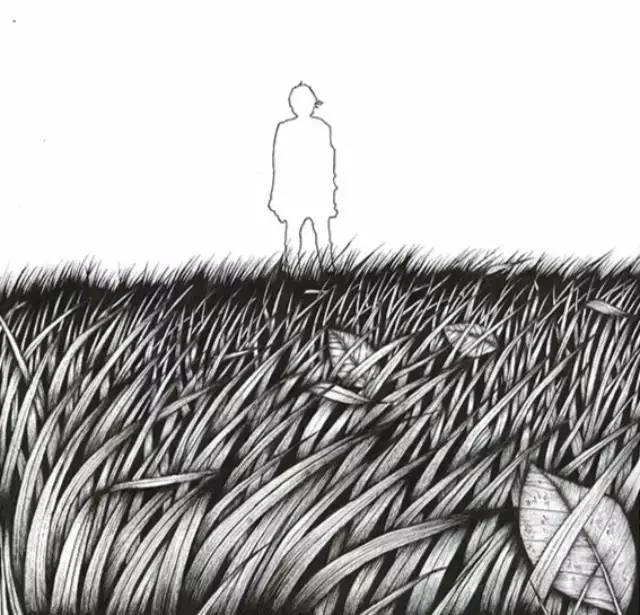
自己之歌(节选)
一个孩子说:草是什么呢?他两手满满的摘了一把送给我;
我如何回答这孩子呢?我知道的并不比他多。
我猜想它必是我的意向的旗帜,由代表希望的碧绿色的物质织成。
或者我猜想它是上帝的手巾,
一件故意抛下的芳香的赠礼和纪念品,
在某一角落上或者还记着所有者的名字,所以我们可以看见并且认识,并说是谁的呢?
或者我猜想这草自身便是一个孩子,是植物所产生的婴孩。
或者我猜想它是一种统一的象形文字,
它的意思乃是:在宽广的地方或狭窄的地方都一样发芽,
在黑人或白人中都一样地生长,
开纳克人、塔卡河人、国会议员、贫苦人民,我给予他们的完全一样,我也完全一样地对待他们。
现在,他对于我,好像是坟墓的未曾修剪的美丽的头发。
卷曲的草哟,我要待你以柔情,
你或者是从青年人的胸脯上生长出来的,
假使我知道他们,我会很爱他们,
或者你是从老年人、从很快就离开了母亲怀抱的婴儿身上生长出来的,
而在这方面你便是母亲的怀抱。
这片草叶颜色暗黑,不会是从年老的母亲的白头上长出来的,
比老年人的无色的胡子还要暗黑,
这黑色倒像是出自于淡红色的上腭所覆盖下的口腔。
啊,我终于看出这么多说着话的舌头了,
我看出它们所以是出自口腔不是没有原因的。
我愿意我能翻译出这关于已死的青年人和女人的暗示,
关于老年人和母亲们和很快就离开了她们的怀抱的婴儿们的暗示。
你想那些青年人和老年人结果怎样了?
你想那些妇人和小孩子们结果怎样了?
他们都在某地仍然健在,
这最小的幼芽显示出实际上并无所谓死,
即使真只有过死,它只是引导生前进,而不是等待着要最后将生遏止,
并且生一出现,死就不复存在了。
一切都向前和向外发展,没有什么东西会消逝,
死并不像一般人所想象的,而是更幸运。
作者 / [美国] 沃尔特·惠特曼
翻译 / 楚图南
选自 / 《惠特曼诗歌精选评析》,河南大学出版社,2006年版
Song of Myself
A child said What is the grass? fetching it to me with full hands;
How could I answer the child? I do not know what it is any more than he.
guess it must be the flag of my disposition, out of hopeful green stuff woven.
Or I guess it is the handkerchief of the Lord,
A scented gift and remembrancer designedly dropt,
Bearing the owner's name someway in the corners, that we may see
and remark, and say Whose?
Or I guess the grass is itself a child, the produced babe of the vegetation.
Or I guess it is a uniform hieroglyphic,
And it means, Sprouting alike in broad zones and narrow zones,
Growing among black folks as among white,
Kanuck, Tuckahoe, Congressman, Cuff, I give them the same, I receive them the same.
And now it seems to me the beautiful uncut hair of graves.
Tenderly will I use you curling grass,
It may be you transpire from the breasts of young men,
It may be if I had known them I would have loved them,
It may be you are from old people, or from offspring taken soon out of their mothers' laps,
This grass is very dark to be from the white heads of old mothers,
Darker than the colorless beards of old men,
Dark to come from under the faint red roofs of mouths.
O I perceive after all so many uttering tongues,
And I perceive they do not come from the roofs of mouths for nothing.
I wish I could translate the hints about the dead young men and women,
And the hints about old men and mothers, and the offspring taken soon out of their laps.
What do you think has become of the young and old men?
And what do you think has become of the women and children?
They are alive and well somewhere,
The smallest sprout shows there is really no death,
And if ever there was it led forward life, and does not wait at the end to arrest it,
And ceas'd the moment life appear'd.
All goes onward and outward, nothing collapses,
And to die is different from what any one supposed, and luckier.
Walt Whitman

“草”,在惠特曼诗歌中,总能从平凡普通的卑微物种提升为充满希望与生机的生命意象。这与惠特曼的精神志向密不可分。
在诗中,“草”的绿之本色与惠特曼精神向往吻合,是他的“意向的旗帜”;“草”的旺盛之力与惠特曼所关照的平凡大众相吻合,它平凡、普通,但它却与众生平等,它“在宽广的地方或狭窄的地方都一样发芽,在黑人或白人中都一样地生长。”“草”的枯荣循环揭示出自然的奥秘,这与人类的生死回环并无二致。惠特曼将宏大高远的目光投射于“草”,借“孩子”之问,一一道出对“草”、对自我、大众及生死的思考。最终,惠特曼告诉大众,无畏死亡,死“更是一种幸运”。
这一小节选自惠特曼长诗《自己之歌》第六小节。诗歌通过形象化的手法对“草”的本质反复探寻,从多个角度充分阐释了惠特曼眼中“草”的多重意蕴。
荐诗 / 中原客
2016/02/27
Published 2016/02/27
Last updated: 2016/02/27

近期评论